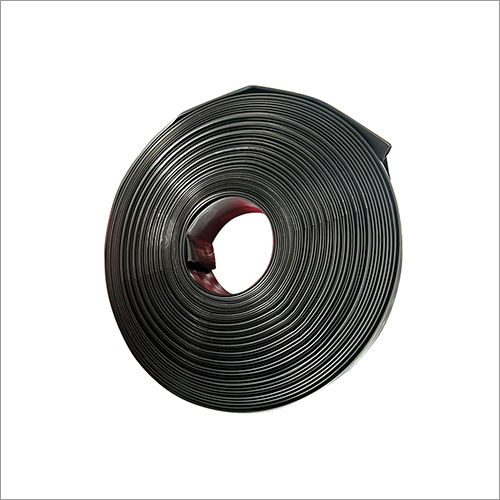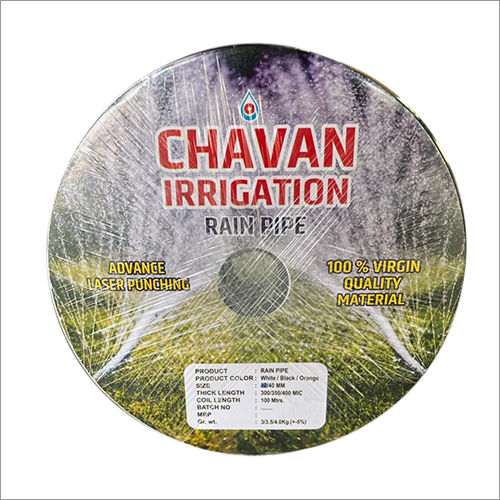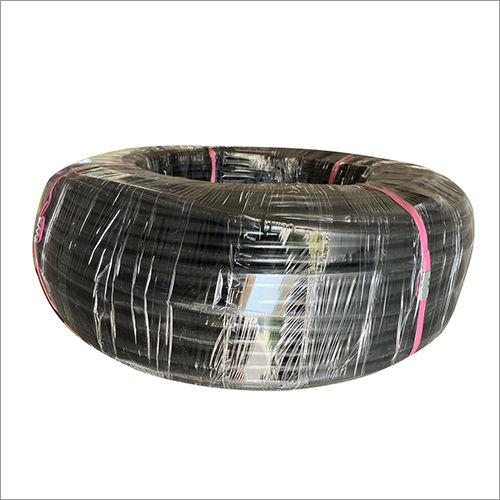Call Us : 08045814301


Farming Irrigation Pipes
1200 INR/Meter
Product Details:
- Product Type Farming Irrigation Pipes
- Material Rubber
- Application Agriculture
- Click to view more
X
Farming Irrigation Pipes Price and Quantity
- 100 Meter
- 1200 INR/Meter
Farming Irrigation Pipes Specification
- Rubber
- Farming Irrigation Pipes
- Agriculture
Farming Irrigation Pipes Trade Information
- Cash Advance (CA)
- 5000 Meter Per Month
- 10 Days
- All India
Product Description
Farming Irrigation Pipes are preventing leakage and water run-off. These able to require for pumping the water. These pipes use in crop production. Apart from these, provided pipes are able to supply water to drip irrigation and sprinkler irrigation. These pipes are available in various dimensions and specifications at nominal rates. They come in a bundle form to use in a reliable manner. Offered pipes are chemical resistance and weather resistance.
Uses of Farming Irrigation Pipes:
Farming irrigation pipes are an essential component of modern agricultural practices, providing a controlled and efficient way to deliver water to crops. These pipes come in various materials, sizes, and designs to cater to different irrigation needs. Some common uses of farming irrigation pipes include:
1. Drip Irrigation: Drip irrigation involves delivering water directly to the base of plants through a network of pipes with small emitters. This method minimizes water wastage and ensures that plants receive a consistent supply of water, reducing the risk of disease and promoting healthier growth.
2. Sprinkler Irrigation: Sprinkler systems use pipes and nozzles to distribute water over a large area, mimicking rainfall. These pipes can be laid above ground or buried below the surface, making them suitable for various crop types and soil conditions.
3. Surface Irrigation: In this method, pipes are used to distribute water over the surface of a field, allowing it to flow and spread across the land. Furrow and basin irrigation are common types of surface irrigation that use pipes to control water flow.
4. Subsurface Irrigation: Subsurface irrigation involves burying pipes beneath the soil surface to deliver water directly to the root zone of plants. This method helps reduce water evaporation and w
e
ed growth while promoting efficient water use.
5. Fertigation: Fertigation is the process of applying fertilizers through irrigation water. Pipes are used to mix and deliver the fertilizers in a dissolved form, ensuring precise nutrient application to the crops.
6. Greenhouse Irrigation: Pipes are often used in greenhouse environments to provide controlled and targeted irrigation to potted plants, hydroponic systems, or other specialized growing methods.
7. Livestock Watering: Irrigation pipes can also be used to provide water to livestock by setting up watering points in pastures or paddocks.
8. Aquaculture: Pipes are used in aquaculture systems to manage water flow, oxygenation, and waste removal in fish and shrimp farms.
9. Erosion Control: Irrigation pipes can be utilized to prevent soil erosion by evenly distributing water across sloped fields, stabilizing the soil and protecting crops.
10. Land Reclamation: In areas with poor soil quality or low water availability, irrigation pipes can be used to introduce water and improve the conditions for plant growth during land reclamation efforts.
11. Orchards and Vineyards: Drip irrigation systems are commonly used in orchards and vineyards to provide targeted water supply to individual trees or vines.
12. Nurseries: Irrigation pipes are employed in plant nurseries to ensure optimal water distribution for young plants during their growth phase.
Enter Buying Requirement Details







